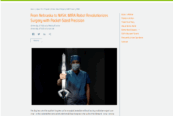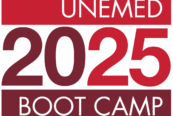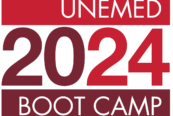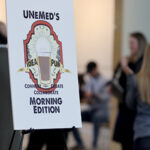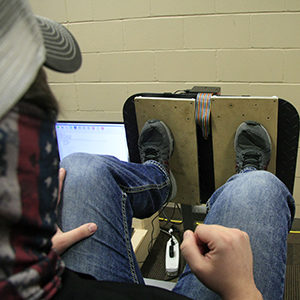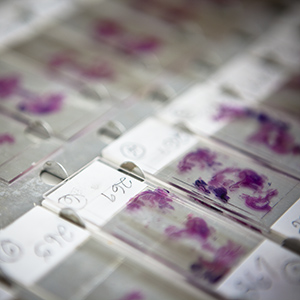by Bill Hadley, UNeMed | July 25, 2012
The University of Nebraska has many of the nation’s brightest minds conducting research at its facilities. These innovators often work with other organizations to solve some of the world’s most difficult problems through various research projects. In order to complete a given project, it is often necessary for a University of Nebraska Medical Center (UNMC) researcher to provide or borrow materials from other entities. To protect their contribution to the research (which may include commercializable intellectual property), universities use various contractual instruments, such as a material transfer agreement (MTA), to protect their interests.
Although an MTA itself does not generate revenue, it sets the stage for future licensing contracts. UNMC’s total revenue for 2011-2012 was $602.5 million, portions of which were due to revenue generated from intellectual property. An MTA outlines which party to the agreement owns intellectual property developed from use of the materials. If UNMC retains ownership to this intellectual property, it is often able to license these rights to an industrial partner and garner royalties, thereby both increasing research funds available to UNMC generally and providing additional financial compensation to the researcher.
Each party to an MTA has a slightly different form that it prefers. If the parties are universities, the exact terms and conditions for each MTA are typically negotiated by the technology transfer offices of the two institutions. This process is generally not too time consuming, as most universities have similar interests.
MTAs may become more complicated when one party is a for-profit entity. This is for obvious reasons: universities are interested in disseminating research results, whereas for-profit corporations focus primarily on generating profits from their materials. Nevertheless, industry-university MTAs are quite common, though the terms of the agreements may require more negotiation.
While it is simple enough to contact UNeMed and ask us to get an MTA in place, researchers also play an important role in MTA formation. By providing descriptions of research plans and descriptions of the materials transferred, the researcher delivers key elements used to draft the MTA and to outline the permitted use of the materials. Since researchers are also responsible for providing or accepting the materials transferred, they read, review, and sign the final MTA to acknowledge awareness of any special conditions that must be observed.
Although MTAs may require some advanced planning to avoid delays in research, they serve an important purpose. MTAs lay the foundation for individual and institutional financial gain, and protect the materials and intellectual property in which universities have rights. These agreements also protect future intellectual property and the researchers’ rights to publish research results. Protections like these are necessary for the existence and mission fulfillment of federally-funded universities. With these protections in place, the brilliant minds employed by UNMC can focus on their research with peace of mind that their contributions will be protected and properly attributed.
Steps for receiving materials from organizations:
- Obtain organization’s contact information (“Provider”).
- Prepare a brief description of materials to be received.
- Write a brief (2-3 sentences) project plan or description, outlining the intended use of the materials.
- Contact UNeMed Contracts Manager, Jeff Andersen, at jeff.andersen@unmc.edu or 402-559-3274. Provide project and material descriptions and a copy of any MTA that Provider may have forwarded to you. If you have not already obtained a copy of Provider’s standard MTA, UNeMed will do so in order to review the terms of the MTA.
- UNeMed and Provider will enter into negotiations until a finalized MTA is agreed upon.
- UNeMed will supply the finalized MTA for you to read, review, and sign.
- Send signed MTA to UNeMed, who will then review and sign.
- MTA is executed by Provider. UNeMed provides a copy of the fully-executed MTA to the researcher, and materials soon follow.
Steps for transferring materials to organizations:
- Obtain organization’s contact information (“Recipient”).
- Prepare a brief description of materials to be transferred.
- Obtain from the Recipient’s principal investigator a brief paragraph of project plan or description, for which materials will be used.
- Contact UNeMed Contracts Manager, Jeff Andersen, at jeff.andersen@unmc.edu or 402-559-3274.. Provide project and material descriptions. UNeMed then sends a copy of UNMC’s standard MTA to Recipient to begin negotiations.
- UNeMed and Recipient will enter into negotiations until a finalized MTA is agreed upon.
- UNeMed will supply the finalized MTA for you to read, review, and sign.
- Send signed MTA to UNeMed, who will then review, sign, and return it to the Recipient.
- MTA is executed by Recipient. UNeMed provides a copy of the fully-executed MTA to the researcher, who can then transfer the materials to the Recipient.
For questions regarding MTAs contact Jeff Andersen at jeff.andersen@unmc.edu or 402-559-3274.
For additional information regarding MTAs, we recommend the following:
- Material Transfer Agreements: A University Perspective by Wendy D. Streitz and Alan B Bennett.
- Material Transfer Agreement information from the University of Chicago
- Material Transfer Agreements information from UNeMed
Join us next week for a discussion about collaborations

